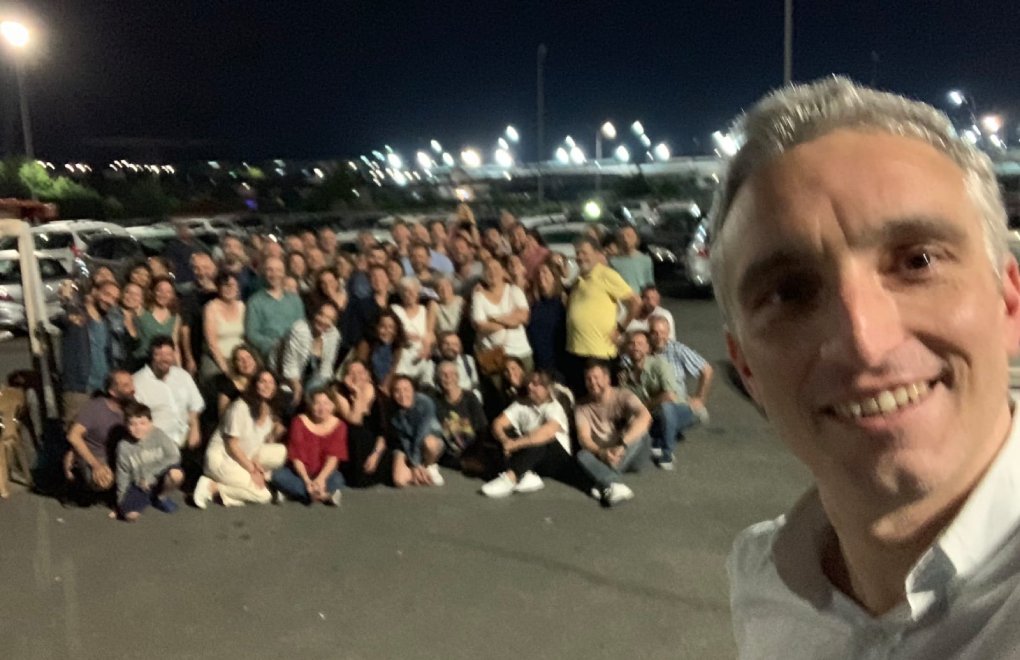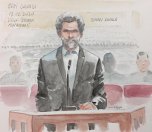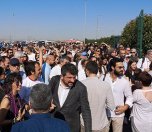Click to read the article in Turkish
The Constitutional Court has handed down its decision regarding Yiğit Aksakoğlu, who was arrested pending trial for seven months as part of the Gezi trial and has been acquitted of all offences charged.
The supreme court has concluded that his imprisonment was a violation of his rights and ruled that he shall be paid damages due to this violation.
Recently, the Constitutional Court has rejected the individual application of arrested businessperson and rights defender Osman Kavala, who was also an arrested defendant of the Gezi trial. Though the local court gave a ruling of acquittal and release for him as well, Kavala was arrested again on another charge before he could leave the prison.
CLICK - Aksakoğlu Released: Lots of Innocent People Behind Bars
CLICK - Aksakoğlu to be Released, Arrest of Kavala to Continue
As reported by Gökçer Tahincioğlu on T24, the decision of right violation has been given by the First Section of the Constitutional Court. The decision has stressed that several meetings and demonstrations were held during the Gezi resistance of 2013 and some of them were peaceful.
"It is an undeniable fact that holding and organizing nonviolent peaceful demonstrations is safeguarded within the scope of the right to hold meetings and demonstrations," the decision has read.
"Holding, organizing and joining peaceful meetings shall not be subject to charges," the First Section of the supreme court has said and added, "However, charges can be naturally filed in the event that unpeaceful demonstrations or the ones that started as peaceful demonstrations, but evolved into violence violate a provision of the penal code or special laws."
Within this context, the Court has emphasized that "in a democratic society, it is possible to give persons a proportional sentence for holding, aiding and participating in a meeting involving violence."
"Nevertheless, if the participation in unpeaceful and violent demonstrations is subjected to charges, it needs to be based on concrete facts.
"On the other side, violence and force are the most important matters in this case because the primary element of the offense based on which the applicant was arrested and then put on trial was the use of force and violence. These points shall be taken into consideration in evaluating the existence of strong criminal suspicion," the Court has added further.
He was not asked about Gezi protests
The Constitutional Court decision on Aksakoğlu has indicated that during his interrogation, he was not asked any questions about his possible participation in the acts of violence during Gezi incidents, adding that there were even no findings regarding his participation in Gezi protests.
The decision has also stressed that there was no evidence, in the subsequent rulings of arrest or the indictment, regarding his use of force or violence, instigating or leading the related acts of violence or support for the acts that would constitute such a crime.
Referring to Aksakoğlu's works for civil disobedience and nonviolent protest methods, the Constitutional Court has indicated that "...while the investigative authorities obtained some facts as to his initiatives for spreading some non-violent activities right after Gezi incidents subsided, they could not present the facts which would prove that these initiatives were done as part of an action to overthrow the government."
As for the acts allegedly committed by Yiğit Aksakoğlu according to the Prosecutor's Office and the indictment, the Constitutional Court has concluded that "...these acts were unrelated, some of them had not nothing to do with the Gezi incidents, individual and legals acts or they were actions to use a right guaranteed by the Constitution."
Lastly, referring to the wiretapped phone conversations of Aksakoğlu, the court decision has noted that "...there was no indication suggesting that the applicant was trying to turn Gezi incidents into a widespread and violent revolt against the government." (HA/SD)








